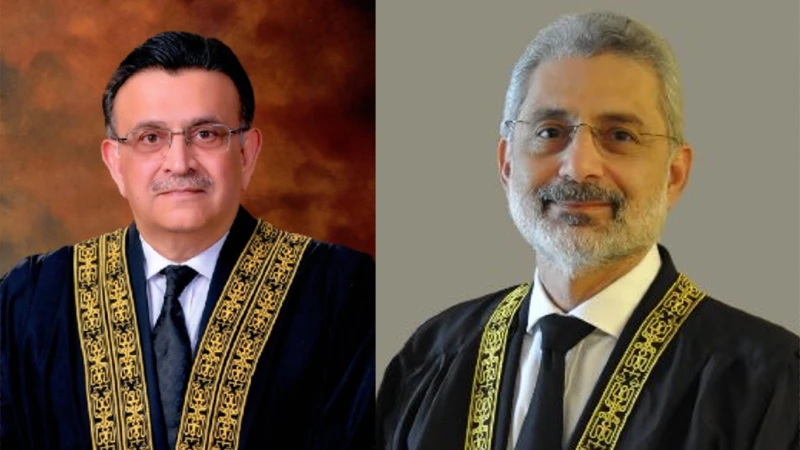By Staff Reporter
ISLAMABAD: Justice Qazi Faez Isa, the senior puisne judge of the Supreme Court, has urgently called for a meeting of the Judicial Commission of Pakistan (JCP), which is long overdue, and has recommended the appointment of two judges to fill the vacant seats in the top court.
The top court currently has 15 judges, including Chief Justice of Pakistan (CJP) Umar Ata Bandial, against the sanctioned strength of 17 judges.
In a letter addressed to all JCP members, Justice Isa suggested the names of Sindh High Court Chief Justice Ahmed Ali M. Shaikh and Peshawar High Court Chief Justice Musarrat Hilali for the appointment.
The JCP, which is composed of nine members, including five senior Supreme Court judges, the federal law minister, the Attorney General for Pakistan (AGP), a representative of the Pakistan Bar Council (PBC), and a retired judge, recommends the elevation of judges to the superior courts.
The JCP last met in October 2022 when three judges were elevated to the apex court after a deadlock over ignoring the seniority principle in picking the names of judges for their elevation to the apex court.
Since taking oath as the chief justice of Pakistan on February 1, Justice Bandial has failed to evolve a consensus on the appointment of SC judges. Five top court judges retired last year, and two seats are still vacant.
Lawyers belonging to Khyber-Pakhtunkhwa (KPK) are upset over the delay in the elevation of the Peshawar High Court judges to the SC. Recently, two senior Peshawar High Court judges retired, but their names were not considered for elevation to the SC. Justice Musarrat Hilali took oath as acting PHC chief justice on March 31.
One section of the JCP, including the superior bars, insists that the seniority rule should be followed while appointing SC judges.
The other section, led by CJP Bandial, gives preference to other aspects, including merit and competence, for the elevation of judges.
Chief Justice Bandial proposed the elevation of former PHC chief justice Qaiser Rashid to the SC, but the majority of the JCP members deferred his nomination.
The SC is divided into two groups on ideological lines.
Senior lawyers doubt the likelihood of Justice Bandial accepting Justice Isa’s proposal to elevate Justice Sheikh and Justice Hilali to the Supreme Court, as CJP Bandial is not known to follow the seniority rule.
In July 2021, during the JCP’s consideration of Justice Muhammad Ali Mazhar’s nomination, Justice Bandial had pointed out that the Chief Justice of the Sindh High Court, Ahmed Ali Sheikh, had not written any reported judgments in the last three years due to the burden of administrative work.
“The commission cannot overlook a deficiency nor relax the criteria for nominating a permanent judge to the Supreme Court,” he had said.
In August 2022, the JCP invited Justice Shaikh by a majority decision of five to four to become an ad hoc SC judge for one year if he accorded his consent.
But the SHC CJ twice declined to attend the SC sitting as an ad hoc judge and rather expressed willingness to be appointed or elevated to the position of a permanent judge.
The Pakistan Bar Council (PBC) has condemned the majority decision to appoint the SHC chief justice as an ad hoc judge of the SC, arguing that such an appointment breaches Article 182 of the Constitution, as only a retired judge could be appointed as an ad hoc judge.
While lawyers agree that it is unlikely that the CJP will approve the appointments due to his prior views, he suggests that if the JCP chairman, who is the CJP, overlooks both nominees, there will be a strong reaction from the KPK and Sindh provinces.
One of the nominees, Justice Hilali is a female Pakhtun judge, while the other one, Justice Sheikh]is an ethnic Sindhi, a senior lawyer said. “Currently, no ethnic Sindhi judge works in the Supreme Court.”
Copyright © 2021 Independent Pakistan | All rights reserved




